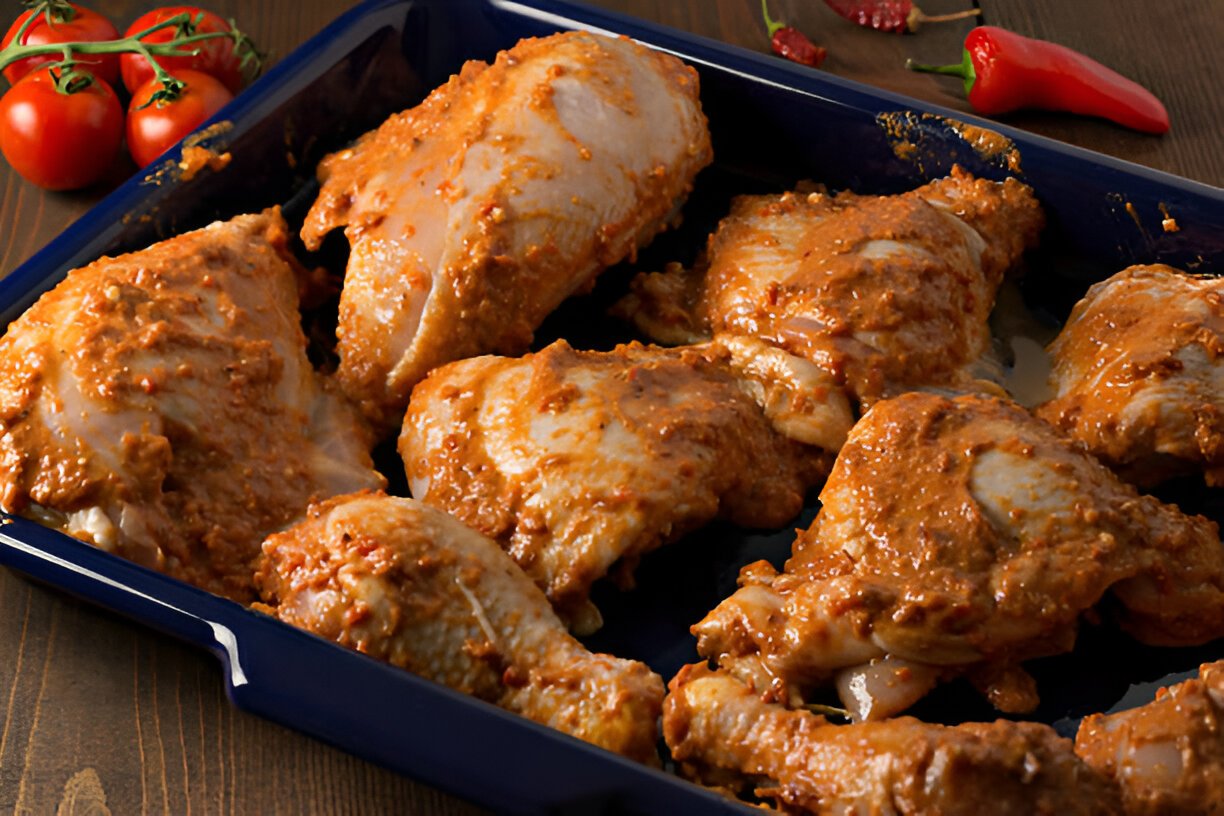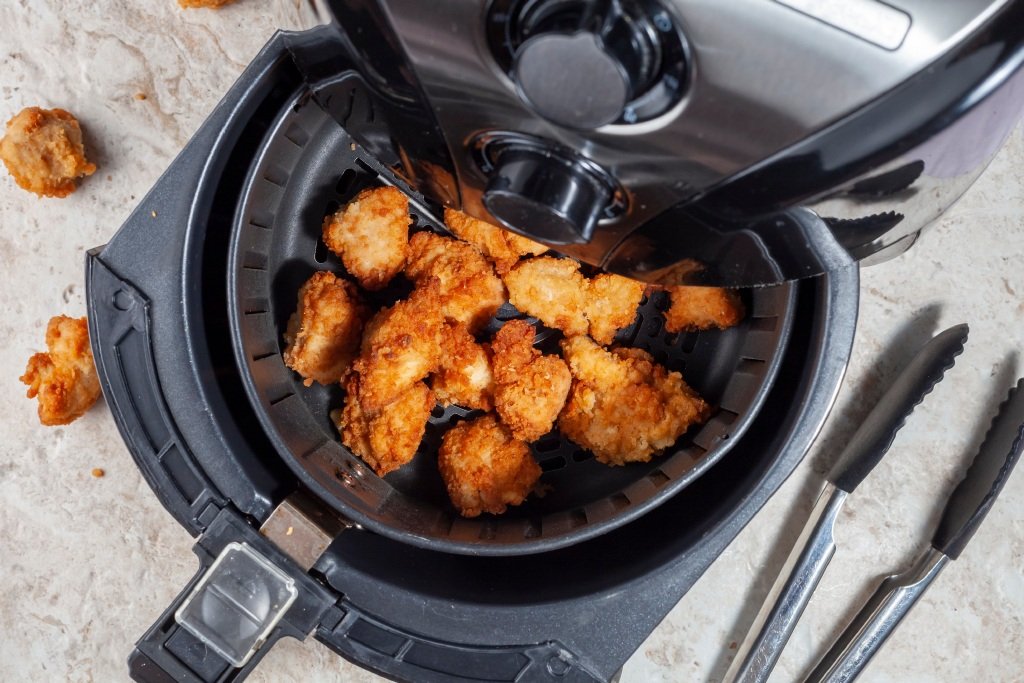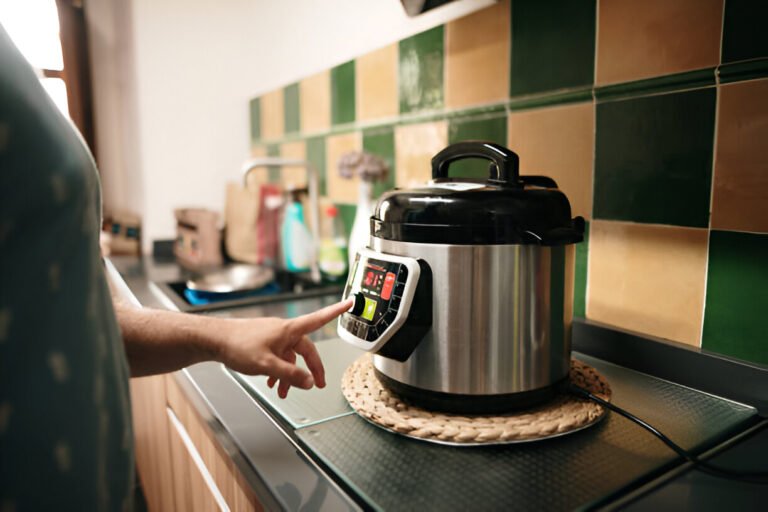Should Chicken Be At Room Temperature Before Cooking? Pros and Cons Explained

Many consider chicken a highly sensitive meat because of its susceptibility to bacteria. These can cause diarrhea, fever, and stomach cramps, especially in people whose immune system is not ideal.
Bacteria grow when chicken is left too long at room temperature.
However, if you cooked the meat, it would pose an entirely different problem. So, should chicken be at room temperature before cooking? Let’s see what science has to say.
Should Chicken Be At Room Temperature Before You Cook It?
No, the chicken should never be left at room temperature, not even when you’re about to cook it.
The bacteria in raw chicken, like Salmonella [1] Campylobacter, and Clostridium Perfringens, can multiply up to three times quicker at room temperature.
If you leave the chicken out on your kitchen counter for too long to thaw, you might be looking at one of the worst cases of food poisoning your family has ever experienced.
However, this isn’t to imply that you should cook frozen chicken.
The key is to thaw the chicken properly, especially if stored in the freezer. Thaw the meat for up to two days inside the fridge before you plan to cook it.
This will give the insides of the meat plenty of time to de-ice while still keeping everything chilled to ward off bacteria.
Once you’re ready to cook it, let it warm up for a little bit on the kitchen counter, but no more than 15 minutes.
Benefits of Keeping It At Room Temperature Before Cooking

Prevent Drying Out
If the chicken meat had been previously frozen, you could expect it to be drier than if you were to use fresh quality meat.
Drying out can be slightly prevented, especially if the proper thawing procedures are followed.
Thawing the chicken properly allows its natural juices to stay within the meat. But how can you make frozen chicken patties better?
Cook Evenly
Keeping the chicken at room temperature before you cook will allow the meat to cook more evenly.
You will notice that cooking the chicken frozen will result in a browned (almost burnt) exterior, while the interior remains pink and frozen, which isn’t all that appetizing.
Leaving the chicken to rest at room temperature for 15 minutes before it hits the pan will solve this problem.
Absorb Marinade Quickly
Chicken that has been thawed properly will absorb marinade quickly and more effectively than frozen chicken.
However, there’s a better hack: put the marinade with the chicken while you’re thawing it inside the fridge, and take it out as usual 15 minutes before you start cooking.
Overnight cooking will allow all the flavors of the marinade to seep into the chicken better and result in a more flavorful cut of meat. Find out if you can eat chicken left overnight here.
Few Juices Will Leak Out
You can expect the chicken to be a bit dry if it had been frozen previously because the juiciness in the meat highly depends on locking in the water content.
You can combat chicken dryness by leaving it on your kitchen counter for 15 minutes before you cook it.
To take it a step further and lock in the juices even more, leave your chicken to rest for at least five minutes after cooking before cutting or serving.
The chicken’s juices will naturally get reabsorbed into the meat during this resting period, giving you a more tender and succulent cut of meat.
Cooking from Cold: Pros and Cons
Cooking chicken straight from the fridge has its advantages, especially when it comes to food safety. Keeping poultry cold until it’s ready to cook reduces the risk of bacteria growth. It also helps retain moisture, preventing the meat from drying out too quickly during the cooking process.
However, cooking cold chicken can increase cooking time. Since the meat starts at a lower temperature, it takes longer to reach a safe internal temperature of 165°F (74°C). This can sometimes lead to uneven cooking, where the outside browns too quickly while the inside remains undercooked.
| Pros | Cons |
| Reduces bacterial risk | Longer cooking time |
| Helps retain moisture | Potential for uneven cooking |
| No extra prep time needed | Requires careful temperature monitoring |
For efficient meal prep, adjusting cooking methods—like searing first or using a meat thermometer—can help ensure safe, juicy, and evenly cooked chicken every time.
How Long Should You Keep Chicken at Room Temperature?
You should leave the chicken at room temperature for no more than 15 minutes.
Leaving raw chicken on your kitchen counter at room temperature for a long period can cause bacterial growth, posing health problems for you and your family.
One of the most common bacteria is salmonella, which grows quickly at warm temperatures.
It’s best to thaw raw chicken inside the fridge if it’s previously been frozen for two days at most. Set it on your kitchen countertop 15 minutes before it hits the pan/skillet.
On the other hand, cooked chicken can stay on your kitchen counter for up to two hours. After this, it’s best to put the leftover chicken inside a sealed container in the fridge. But how long will vacuum-sealed chicken last in the fridge?
Health Risks of Room Temperature Chicken
Keeping chicken at room temperature for too long can pose serious health risks. Raw or cooked chicken left out can become a breeding ground for bacteria like Salmonella and Campylobacter, which cause foodborne illnesses. Even if the chicken looks fine, harmful bacteria may be present and multiply rapidly under the right conditions.
The Danger Zone for Chicken
Chicken should never sit in the danger zone—a temperature range of 40°F to 140°F (4°C to 60°C)—for more than two hours. In warm environments above 90°F (32°C), this window shrinks to just one hour. Within this range, bacteria can double in as little as 20 minutes, increasing the risk of food poisoning.
| Temperature (°F) | Bacterial Growth Risk |
| Below 40°F | Safe storage |
| 40°F – 140°F | Rapid bacteria growth |
| Above 165°F | Safe cooking zone |
To stay safe, always refrigerate chicken promptly and check for spoilage signs like a slimy texture, foul odor, or discoloration before cooking.
FAQs on Chicken Keep at Room Temperature
Should you thaw chicken before cooking?
Yes, you should thaw chicken before cooking. It’s best to thaw frozen chicken inside the refrigerator for two days before cooking.
However, it’s not a good idea to thaw raw chicken on your kitchen counter, as bacteria like salmonella multiply quickly in warm temperatures. But can you put warm chicken in the fridge?
What is the fastest way to put chicken at room temperature?
The fastest way to put chicken at room temperature is to set it outside on your kitchen counter 15 minutes before it hits the pan. This will allow for a more even cooking of the chicken meat. But can you eat cold cooked chicken?
Final Verdict
In summary, no, chicken shouldn’t be left at room temperature. Ever.
When left at room temperature, chicken meat is especially susceptible to bacteria that could cause foodborne illnesses like vomiting and diarrhea.
The best way to prepare chicken for cooking is to leave it to thaw inside your refrigerator for two days before cooking and to set it outside on your kitchen counter 15 minutes before it hits the pan/skillet.
This short warming period allows the chicken to cook evenly throughout and avoid a pink, frozen interior.
Reference:
- https://www.mayoclinic.org/diseases-conditions/salmonella/symptoms-causes/syc-20355329

Kathy is a restaurateur, artist, and blogger. After spending more than 10 years in the restaurant industry, she has decided to go digital and share her expertise and experience online.






